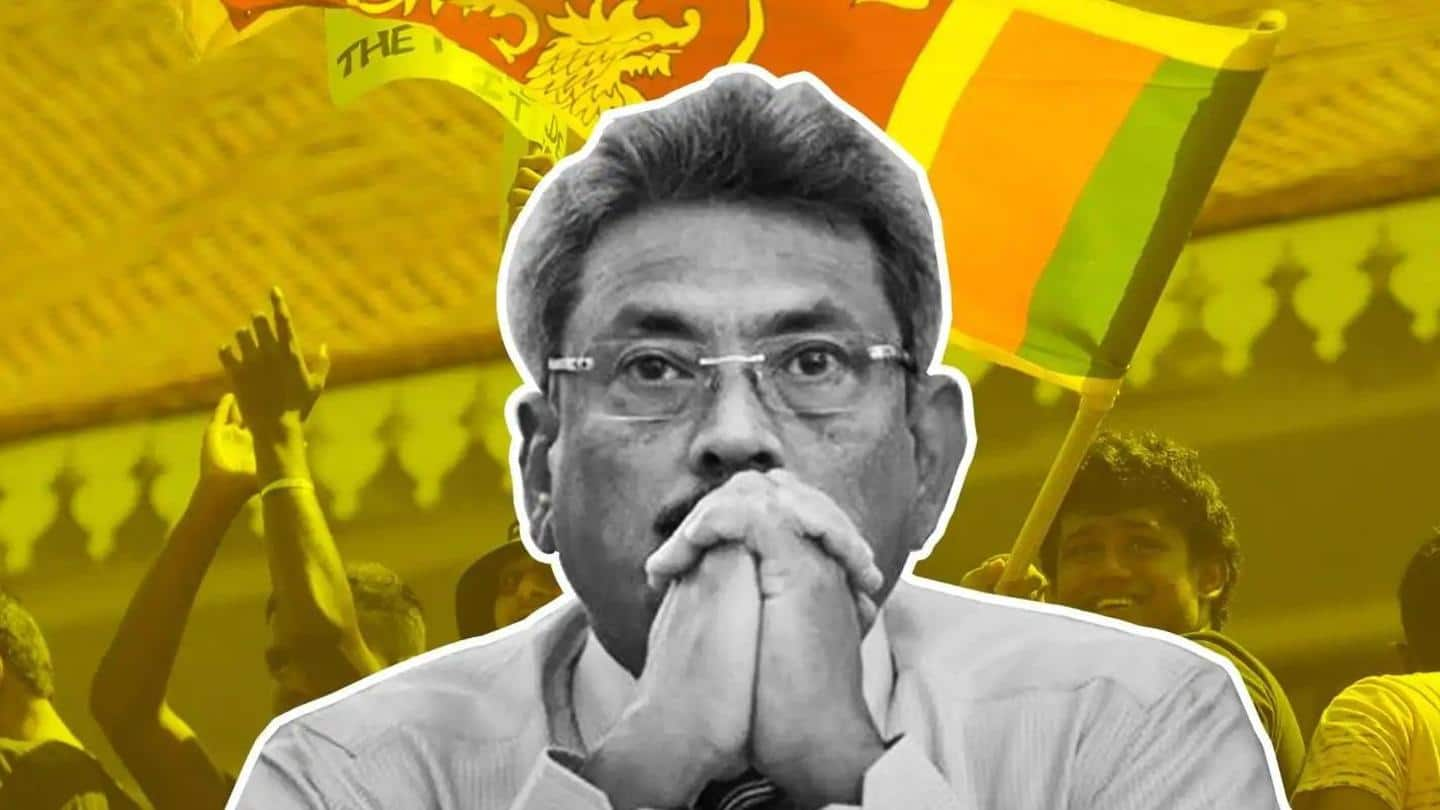
Amid economic crisis, Sri Lanka defaults on $51 billion debt
What's the story
Sri Lanka on Tuesday announced that it was defaulting on its $51 billion external debt in anticipation of a bailout from the International Monetary Fund.
Sri Lanka is facing its worst economic crisis, sparking calls for government resignation.
The lenders—including foreign governments—are now free to capitalize on interest payments due as of Tuesday or opt for repayment in Sri Lankan rupees, the government said.
Context
Why does this story matter?
People in Sri Lanka are having a tough time as the country's commercial banks are unable to secure US dollars to finance food, fuel, and medicine imports, leading to shortages.
The shortage of foreign currency means that the nation has been struggling to import and pay for even essential commodities like food, medicine, fuel, etc.
Meanwhile, food prices rose by nearly 30% last month.
Official statement
Statement from Sri Lanka's finance ministry and central bank
"The government is taking the emergency measure only as a last resort to prevent further deterioration of the republic's financial position," Sri Lanka's Finance Ministry said on Tuesday.
Central Bank of Sri Lanka (CBSL) Governor P Nandalal said, "It has come to a point that making debt payments are challenging and impossible. The best action...is to restructure debt and avoid a hard default."
Import
Debt payments defaulted to import basic necessities
Ahead of Tuesday's announcement, officials had said that the Sri Lankan government was considering halting foreign debt payments to prevent a hard default.
The move would preserve its scarce foreign exchange reserves for the procurement of necessities such as food, fuel, and medicine.
Sri Lanka's foreign exchange reserves fell 16.1% to $1.93 billion in March from the previous month, according to CBSL.
Debt break-up
Details about Sri Lanka's foreign debt
China and Japan each hold about 10% of Sri Lanka's foreign debt, while India holds less than 5%.
Nearly half of the debt is accounted for by market borrowings in the form of global sovereign bonds.
The country will further face challenges later in April when interest payments on a 2023 dollar bond and a 2028 note become due, totaling $78.2 million.
Experts
Government's manhandling worsened crisis, say experts
According to economists, the crisis has been exacerbated by the government's poor fiscal mishandling, years of outstanding debt, and ill-advised tax cuts.
"To get out of the crisis, the quick establishment of an effective government should be the first priority. Clinching a deal with the International Monetary Fund (IMF) should be next," Ankur Shukla and Abhishek Gupta of Bloomberg Economics wrote on the issue.